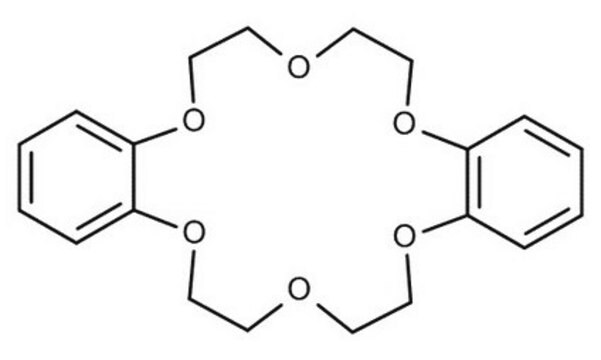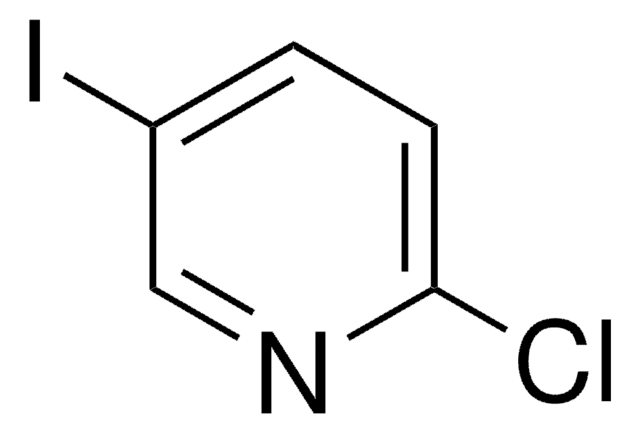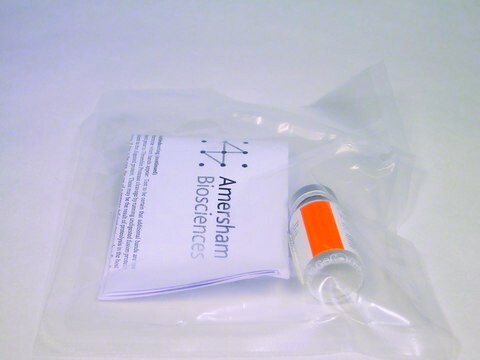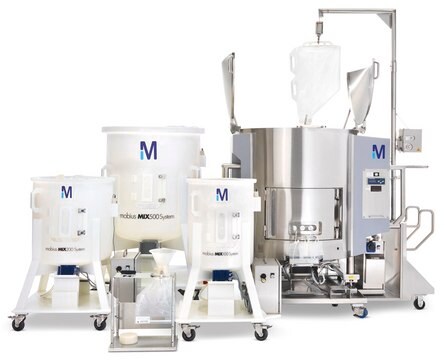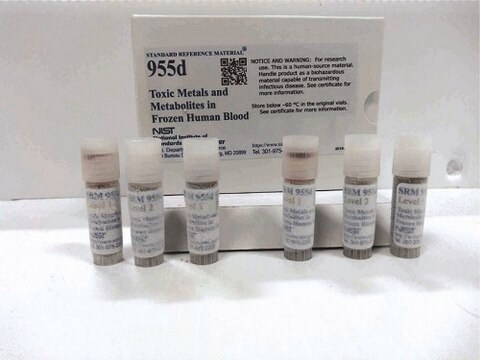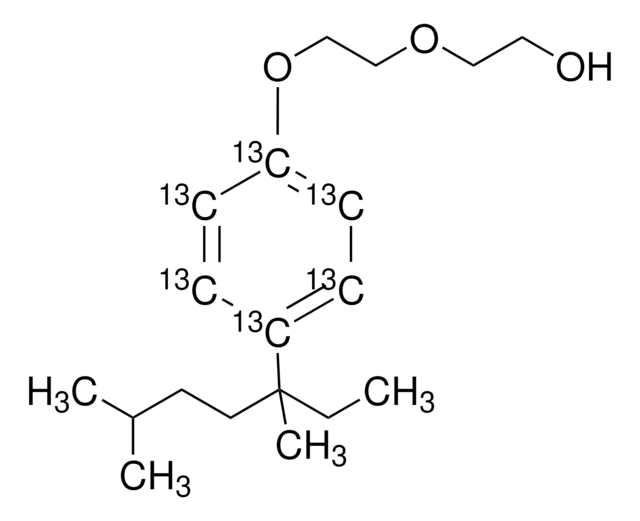Alle Fotos(1)
Wichtige Dokumente
38922
Abberior® STAR 512, NHS-ester
for STED application
Anmeldenzur Ansicht organisationsspezifischer und vertraglich vereinbarter Preise
Alle Fotos(1)
About This Item
UNSPSC-Code:
12352200
NACRES:
NA.32
Empfohlene Produkte
Qualitätsniveau
Assay
≥80.0% (degree of coupling)
Mol-Gew.
Mw 836.7 g/mol
Löslichkeit
DMF: 0.25 mg/mL, clear
Fluoreszenz
λex 510 nm; λem 530 nm±5 nm in PBS, pH 7.4
Lagertemp.
−20°C
Allgemeine Beschreibung
Absorption Maximum, λmax: 517 nm (MeOH),
511 nm (PBS, pH 7.4)
Extinction Coefficient, ε(λmax): 85,000 M-1cm-1 (PBS, pH 7.4)
Correction Factor, CF260 = ε260/εmax: 0.24 (PBS, pH 7.4)
Correction Factor, CF280 = ε280/εmax: 0.07 (PBS, pH 7.4)
Fluorescence Maximum, λfl: 533 nm (MeOH),
530 nm (PBS, pH 7.4)
Recommended STED Wavelength, λSTED: 590 −620 nm
Fluorescence Quantum Yield, η: 0.82 (PBS, pH 7.4)
Fluorescence Lifetime, τ: 4.1 ns (PBS, pH 7.4)
511 nm (PBS, pH 7.4)
Extinction Coefficient, ε(λmax): 85,000 M-1cm-1 (PBS, pH 7.4)
Correction Factor, CF260 = ε260/εmax: 0.24 (PBS, pH 7.4)
Correction Factor, CF280 = ε280/εmax: 0.07 (PBS, pH 7.4)
Fluorescence Maximum, λfl: 533 nm (MeOH),
530 nm (PBS, pH 7.4)
Recommended STED Wavelength, λSTED: 590 −620 nm
Fluorescence Quantum Yield, η: 0.82 (PBS, pH 7.4)
Fluorescence Lifetime, τ: 4.1 ns (PBS, pH 7.4)
Anwendung
Abberior® Star 512 labelled phosphoethanolamine lipid analogues were used for gated STED-FCS (stimulated emission depletion - fluorescence correlation spectroscopy) study.
Eignung
Designed and tested for fluorescent super-resolution microscopy
Sonstige Hinweise
Rechtliche Hinweise
abberior is a registered trademark of Abberior GmbH
Ähnliches Produkt
Produkt-Nr.
Beschreibung
Preisangaben
Lagerklassenschlüssel
13 - Non Combustible Solids
WGK
WGK 3
Flammpunkt (°F)
Not applicable
Flammpunkt (°C)
Not applicable
Hier finden Sie alle aktuellen Versionen:
Analysenzertifikate (COA)
Lot/Batch Number
Die passende Version wird nicht angezeigt?
Wenn Sie eine bestimmte Version benötigen, können Sie anhand der Lot- oder Chargennummer nach einem spezifischen Zertifikat suchen.
Besitzen Sie dieses Produkt bereits?
In der Dokumentenbibliothek finden Sie die Dokumentation zu den Produkten, die Sie kürzlich erworben haben.
Mathias P Clausen et al.
Methods (San Diego, Calif.), 88, 67-75 (2015-07-01)
Recent years have seen the development of multiple technologies to investigate, with great spatial and temporal resolution, the dynamics of lipids in cellular and model membranes. One of these approaches is the combination of far-field super-resolution stimulated-emission-depletion (STED) microscopy with
S W Hell et al.
Optics letters, 19(11), 780-782 (1994-06-01)
We propose a new type of scanning fluorescence microscope capable of resolving 35 nm in the far field. We overcome the diffraction resolution limit by employing stimulated emission to inhibit the fluorescence process in the outer regions of the excitation
Marcus Dyba et al.
Nature biotechnology, 21(11), 1303-1304 (2003-10-21)
We report immunofluorescence imaging with a spatial resolution well beyond the diffraction limit. An axial resolution of approximately 50 nm, corresponding to 1/16 of the irradiation wavelength of 793 nm, is achieved by stimulated emission depletion through opposing lenses. We
Tim Grotjohann et al.
Nature, 478(7368), 204-208 (2011-09-13)
Lens-based optical microscopy failed to discern fluorescent features closer than 200 nm for decades, but the recent breaking of the diffraction resolution barrier by sequentially switching the fluorescence capability of adjacent features on and off is making nanoscale imaging routine. Reported
Stefan W Hell
Nature biotechnology, 21(11), 1347-1355 (2003-11-05)
For more than a century, the resolution of focusing light microscopy has been limited by diffraction to 180 nm in the focal plane and to 500 nm along the optic axis. Recently, microscopes have been reported that provide three- to
Unser Team von Wissenschaftlern verfügt über Erfahrung in allen Forschungsbereichen einschließlich Life Science, Materialwissenschaften, chemischer Synthese, Chromatographie, Analytik und vielen mehr..
Setzen Sie sich mit dem technischen Dienst in Verbindung.

